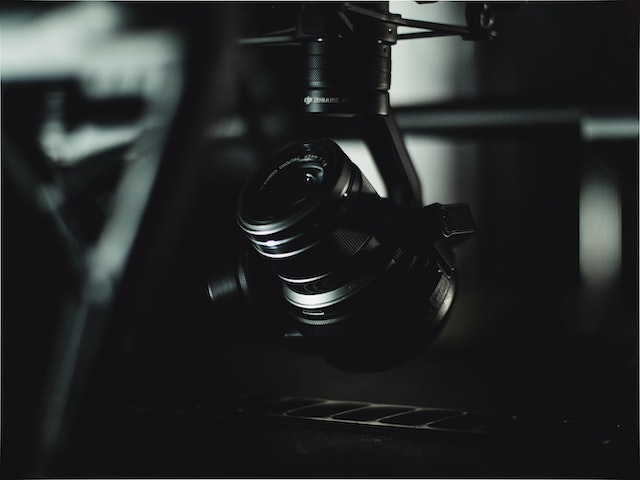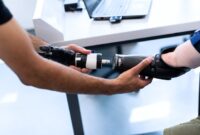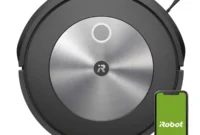Drones have revolutionized industries such as photography, videography, agriculture, surveying, and even delivery services. Their ability to capture stunning aerial footage, perform complex tasks, and gather valuable data has made them an indispensable tool for professionals. If you’re considering buying a professional drone to unlock your potential in these fields, this buying guide will help you make an informed decision. From understanding the types of drones to considering important factors, we’ll explore everything you need to know.

1. Introduction
In today’s world, professional drones have become an integral part of various industries. Their versatility and capabilities have opened up new opportunities for businesses and individuals alike. Whether you’re a photographer, videographer, or farmer, a professional drone can take your work to new heights.
2. Types of Drones
When it comes to drones, there are various types available on the market. Understanding the differences between these types will help you make an informed decision when choosing the right drone for your needs. Here are the three main categories of drones:
Consumer Drones
Consumer drones are designed for recreational use by hobbyists and enthusiasts. They are typically smaller in size, lightweight, and easy to fly, making them accessible to beginners. These drones often come with built-in cameras that can capture photos and videos of decent quality. Consumer drones are ideal for aerial photography, capturing family moments, or simply enjoying the thrill of flying a drone.
Prosumer Drones
Prosumer drones bridge the gap between consumer and professional models. They offer more advanced features and capabilities while still being relatively user-friendly. Prosumer drones are suitable for individuals who require better camera quality and enhanced flight performance. These drones often come with improved stability, longer flight times, and more intelligent flight modes. They are commonly used by photographers, videographers, and content creators who want to take their aerial photography and videography to the next level.
Professional Drones
Professional drones are specifically designed for commercial use and are built to meet the demands of various industries. These drones are equipped with high-quality cameras, advanced flight systems, and a range of features tailored for professional applications. They are larger and more powerful compared to consumer and prosumer drones, offering greater payload capacity and longer flight times. Professional drones are utilized in industries such as cinematography, surveying and mapping, agriculture, inspection, and search and rescue operations. They provide professionals with the ability to capture high-resolution imagery, gather data, and perform complex tasks in challenging environments.
When choosing a drone, consider your skill level, intended use, and budget. Consumer drones are perfect for beginners and recreational use, prosumer drones cater to hobbyists and semi-professionals, while professional drones are best suited for commercial applications. Select the type of drone that aligns with your needs and take your aerial endeavors to new heights.
3. Factors to Consider Before Buying a Professional Drone
When purchasing a professional drone, it’s crucial to consider several factors to ensure you get the right model for your needs. Firstly, determine the purpose of use, whether it’s aerial photography, mapping, or inspection. Additionally, consider the payload capacity, flight time, range, camera specifications, and GPS/navigation features that align with your requirements.
4. Popular Professional Drone Brands
Several reputable brands dominate the professional drone market, offering reliable and feature-packed models. DJI, Yuneec, Autel Robotics, and Freefly Systems are known for their quality craftsmanship and innovative technologies. Researching these brands and their offerings will help you find the perfect drone for your professional endeavors.
5. Features and Specifications to Look for in a Professional Drone
To make an informed buying decision, it’s important to evaluate the features and specifications of professional drones. Consider the build quality and durability to withstand challenging environments. Flight stability, maneuverability, and battery life are essential for smooth aerial operations. Advanced features like obstacle avoidance, intelligent flight modes, and real-time video transmission enhance the overall flying experience.
6. Professional Drone Accessories
Investing in accessories can greatly enhance your drone’s capabilities and convenience. Extra batteries and charging hubs ensure longer flight times, while camera gimbals and filters improve the quality of your aerial photography or videography. Propeller guards, landing gears, carrying cases, and backpacks provide protection and ease of transport. Don’t forget to explore remote control accessories for a more personalized flying experience.
7. Budget Considerations
Setting a budget is crucial when buying a professional drone. Prices can vary significantly based on features, capabilities, and brand reputation. Determine the value for money offered by different models and strike a balance between your requirements and budget.
8. Regulatory and Legal Requirements
Operating a professional drone requires adherence to regulatory and legal requirements. Ensure you understand the drone registration and licensing processes in your country. Additionally, be aware of any local restrictions or flight regulations to avoid legal issues and ensure safe flying practices.
9. Safety Precautions and Training
Safety should always be a top priority when operating a professional drone. Acquire basic flight skills and practice various maneuvers to handle your drone confidently. Familiarize yourself with airspace rules and understand how to perform maintenance and pre-flight checks. By taking proper precautions and training, you can ensure the safety of yourself and others.
10. Tips for Successful Drone Photography and Videography
To capture stunning aerial imagery, it’s essential to master the art of drone photography and videography. Pay attention to composition and framing, utilize lighting and exposure techniques, and explore post-processing methods to enhance your final results. With practice and experimentation, you can take your aerial footage to the next level.
11. Future Trends in Professional Drones
The world of professional drones is constantly evolving. As technology advances, we can expect exciting future trends. Autonomous flight capabilities, integration of artificial intelligence and machine learning, and the emergence of new applications in various industries will continue to shape the landscape of professional drones. Stay informed about the latest developments to remain at the forefront of this exciting field.
12. Conclusion
Investing in a professional drone is an excellent way to unlock your potential in industries that benefit from aerial capabilities. By considering the factors discussed in this guide, you can make a well-informed decision and choose a professional drone that aligns with your specific needs. Embrace the power of drone technology and explore new heights in your professional endeavors.
FAQs
Q1: Can I use a consumer drone for professional purposes? A1: While consumer drones have some capabilities, they may lack the advanced features and performance needed for professional applications. It’s recommended to invest in a dedicated professional drone for optimal results.
Q2: Are professional drones easy to fly? A2: Professional drones generally require some training and practice to fly proficiently. However, modern drones come with user-friendly controls and intelligent flight modes that make flying easier for beginners.
Q3: Do I need a license to fly a professional drone? A3: The requirement for a license depends on your country’s regulations. In many regions, commercial drone operators are required to obtain a license or permit. Check with your local aviation authority for specific requirements.
Q4: How long can a professional drone fly on a single battery charge? A4: Flight time varies among different drone models. Some professional drones can fly for 20-30 minutes on a single battery charge, while others may have longer flight times of 30-40 minutes or more.
Q5: What industries can benefit from professional drones? A5: Several industries can benefit from professional drones, including photography, videography, agriculture, construction, surveying, real estate, and infrastructure inspection, to name a few. Drones offer unique perspectives and data collection capabilities in these fields.


